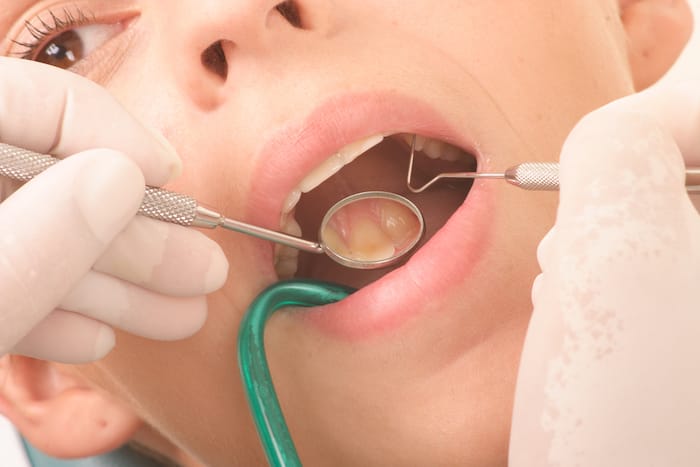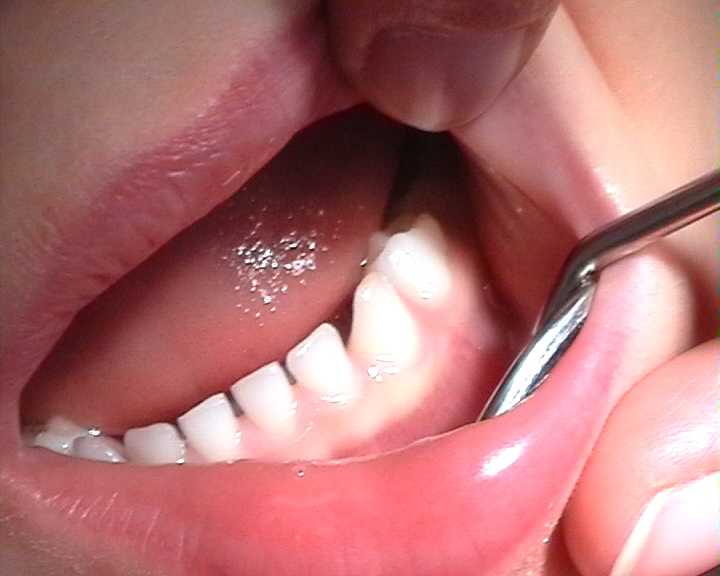- Calls to this hotline are currently being directed to Within Health or Eating Disorder Solutions
- Representatives are standing by 24/7 to help answer your questions
- All calls are confidential and HIPAA compliant
- There is no obligation or cost to call
- Eating Disorder Hope does not receive any commissions or fees dependent upon which provider you select
- Additional treatment providers are located on our directory or samhsa.gov
Dental Problems Caused By Bulimia
One of the more detrimental and common side effects of bulimia involves dental damage.
When a person with bulimia engages in the repeated act of self-induced vomiting, teeth are subjected to continual stomach acid exposure. Chronic purging and the resulting presence of hydrochloric acid in the mouth can produce many dental problems.
The negative ways in which teeth are impacted by bulimia are often overshadowed by other major health consequences, such as cardiovascular complications, electrolyte imbalances, gastrointestinal distress, and bone loss.
But bulimia’s dental impact is hard to ignore, and often, dentists are the first to suspect that someone has bulimia. Almost 30% of people with bulimia were first diagnosed during a dental appointment.[1]
Dental damage from bulimia is permanent. But dentists can use veneers and other cosmetic treatments to improve your smile. Treating your bulimia ensures that you don’t do more damage to your teeth.
4 Ways Bulimia Affects Your Teeth
Bulimia teeth are often associated with vomiting. While much of the damage you’ll face is caused by purging, bulimia’s impact is much more widespread. And the issues may be severe before you notice them.
Many may find it difficult or painful to chew or swallow, while some may suffer from broken or missing teeth. Untreated cavities could lead to more serious health conditions, and bleeding gums could reflect periodontal disease.
These are four of the ways in which bulimia can hurt your teeth.
1. Contact With Vomit
When you purge, acidic contents from your stomach move up your esophagus and out of your mouth. The acids can wear away the surface of your teeth, exposing tissues below.[2] Your teeth may be sensitive, especially when you drink hot or cold liquids, and they may look glassy and smooth.
The more frequently you purge, the more damage you’ll do to your teeth. And there’s no way to vomit without exposing your teeth to stomach acids.
2. Toothbrushing
Many people with bulimia work hard to keep their habits a secret. You may brush your teeth after every purge to ensure that no one can smell vomit on your breath. More than 32% of people with bulimia brush immediately after purging.[3]
Your toothbrush pushes stomach acids around your mouth, increasing the chances of erosion on the front and sides of your teeth. And the abrasives in toothpaste work in tandem with those acids to wash your enamel away.
3. Reduced Saliva
People with bulimia produce less saliva than those who don’t have bulimia.[4] Antidepressant medications can reduce your saliva flow, as can compulsive exercise. Purging and brushing regularly can make things worse too.
Saliva neutralizes bacteria and offers decay protection. Dry, sticky teeth can erode much faster than those coated with saliva.
4. Poor Diet
People with bulimia often gravitate toward sugary, sweet, carbonated drinks.[5] These beverages encourage bacterial growth, and they can erode your enamel even more. Sweet foods you eat during a binge can do yet more damage.
Common Signs of Bulimia Dental Damage
You may not notice dental problems right away. But when you visit your dentist, the issue will become clear.
When people with bulimia visit the dentist, they often have the following:[6]
- Cavities
- Eroded tooth surfaces
- Dental pain
- High levels of bacteria
- Dry mouth
- Enlarged glands
- Swallowing problems
Your dentist may talk with you about bulimia during your exam. If you have a good relationship with your dentist, now is the time to speak up about your oral health challenges. Together, you can find a path forward.
Can Bulimia Teeth Damage Be Reversed?
The longer your bulimia lasts, the more severe your dental problems. Among people with lesions extending into the tooth’s center, most have lived with bulimia for years.[7]
The sooner you get care, the healthier your mouth will be. While the damage you have can’t be reversed, it can be treated.
Dentists use tools like veneers to cover up damaged tooth areas.[8] The veneers look and feel just like your real teeth, and they can keep you from losing more surface area to damage.
Dentists can also fill some lesions (just as they might fill a cavity), and they can use fluoride treatments to ease your discomfort. Working with your dentist can mean both feeling and looking better.
It is important to know that there is hope and healing, not just for your teeth, but for your whole self. Restoration can truly occur from the inside out as you seek the resources you need to heal from bulimia.
Other Bulimia Health Problems
Your bulimia issues aren’t confined to your mouth. People with bulimia can face many health issues due to bingeing and purging.
Eating disorder consequences can include the following:[9]
- Heart attack
- Kidney failure
- Osteoporosis
- Electrolyte imbalances
Life with bulimia is also very difficult. Your mental health suffers as you try to keep your habits a secret.
How Bulimia Is Treated
Bulimia is a severe psychiatric illness that can impact your life, individuality, security, and self-esteem in ways you never thought possible. It can feel overwhelming to know how your recovery journey might unfold or how your body might be restored from the damage of bulimia.
This will involve the collaborative work of a medical physician, therapist, dietitian, and psychiatrist, who can work together to ensure that you are recovering fully from bulimia nervosa.
Your treatment team can develop a plan just for you that allows you to heal both physically and mentally.
Recovery is possible, as more than 68% of people with bulimia recover within 22 years.[10] But you’ll need to work hard in conjunction with your team to make your recovery stick.
While the short-term solution may be to treat your dental conditions by filling cavities, repairing broken teeth, and caring for gums, the long-term solution is to seek appropriate bulimia treatment.
References
- Caring for Dental Patients with Eating Disorders. BDJ Team. https://www.nature.com/articles/bdjteam20159. 2015. Accessed July 2022.
- Bulimia: Caring for Your Teeth. National Centre for Eating Disorders. https://eating-disorders.org.uk/information/caring-for-your-teeth/. Accessed July 2022.
- Oral Care Behavior After Purging in a Sample of Women with Bulimia Nervosa. The Journal of the American Dental Association. https://www.sciencedirect.com/science/article/abs/pii/S0002817714600131. April 2014. Accessed July 2022.
- The Impact of Bulimia Nervosa on Oral Health: A Review of the Literature. British Dental Journal. https://www.nature.com/articles/sj.bdj.2017.837. 2017. Accessed July 2022.
- Diet and Behavioral Habits Related to Oral Health in Eating Disorder Patients: A Matched Case-Control Study. Journal of Eating Disorders. https://jeatdisord.biomedcentral.com/articles/10.1186/s40337-020-0281-z. 2020. Accessed July 2022.
- Oral Profiles of Bulimic Women: Diagnosis and Management. What Is the Evidence? Journal of Evidence-Based Dental Practice. https://www.ncbi.nlm.nih.gov/pmc/articles/PMC3267322/. January 2012. Accessed July 2022.
- Self-Induced Vomiting and Dental Erosion: A Clinical Study. BMC Oral Health. https://bmcoralhealth.biomedcentral.com/articles/10.1186/1472-6831-14-92. July 2014. Accessed July 2022.
- Minimally-Invasive Prosthetic Procedures in the Rehabilitation of a Bulimic Patient Affected by Dental Erosion. Journal of Clinical and Experimental Dentistry. https://www.ncbi.nlm.nih.gov/pmc/articles/PMC4368008/. February 2015. Accessed July 2022.
- Busting the Myths About Eating Disorders. National Eating Disorders Association. https://www.nationaleatingdisorders.org/busting-myths-about-eating-disorders. Accessed July 2022.
- Recovery from Anorexia Nervosa and Bulimia Nervosa at 22-Year Followup. Journal of Clinical Psychiatry. https://www.ncbi.nlm.nih.gov/pmc/articles/PMC7883487/. February 2017. Accessed July 2022.
Related Reading
- What is Bulimia: Symptoms, Complications, & Causes
- Bulimia and Depression
- Thinking Patterns of Eating Disorders Due to Dehydration and Malnutrition
- The Relationship Between Bulimia and Addiction
- Bulimia and Anxiety: How Do They Relate?
- Bulimia Impacts the Entire Family
- Bulimia and Starvation: How Restriction Perpetuates the Binge-Purge Cycle
- IPT Therapy – How it is Used for Bulimia Nervosa
- Weight Fluctuation, Chronic Dieting & Bulimia: How Bad is it on Your Body
- Bulimia and the Brain: How Is Neurobiology a Factor?



